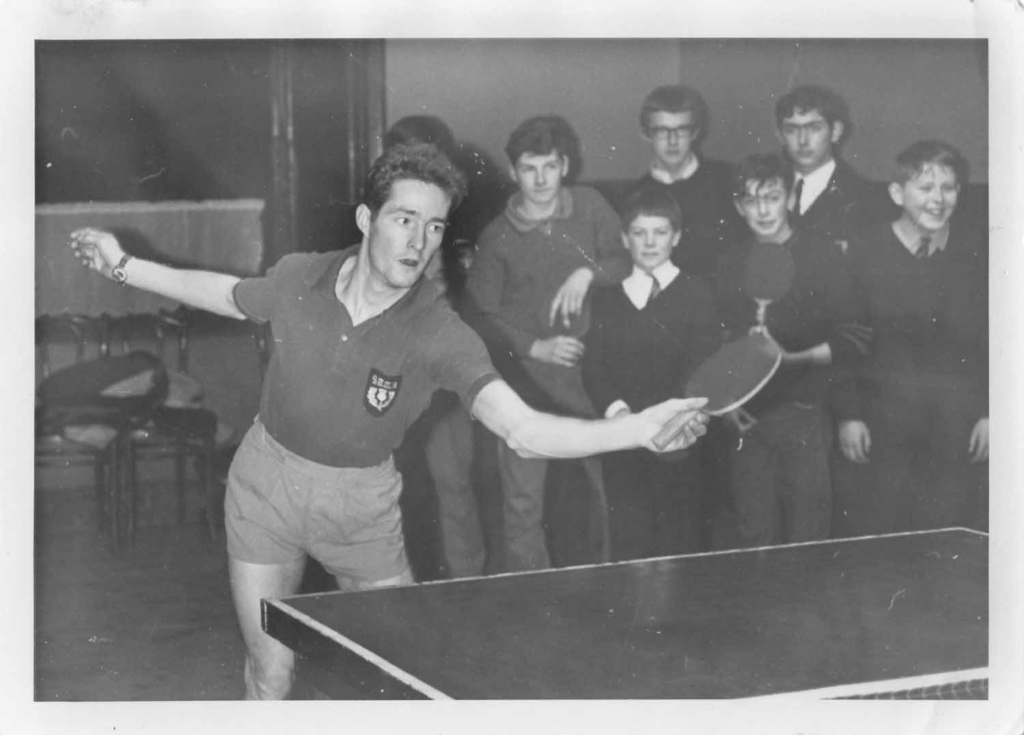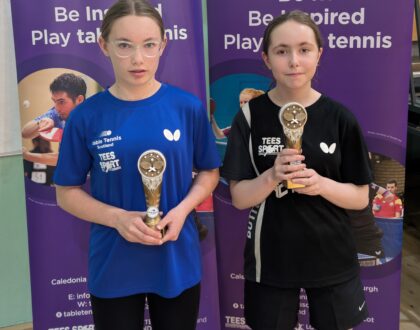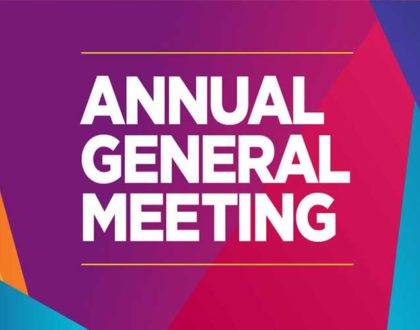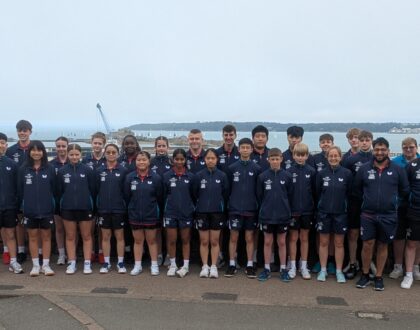Malcolm Sugden
 OBITUARY
OBITUARY
MALCOLM SUGDEN
1941- 2023
It is with a great deal of sadness I write to inform you of the passing of Malcolm Sugden, one of Scotland’s truly great players of the post war and modern era. He was born in April 1941 at Stanningley near Leeds in Yorkshire and following a healthy and very active life succumbed to cancer in October 2023 in Bushey, Hertfordshire, where Malcolm lived very happily all his married life. Malcolm is survived by his wife, Wendy and two daughters, Julie and Fiona. Malcolm and Wendy were married in 1971.
Malcolm was born into a talented sporting family. His mother was originally from Perth and his father was a cricket professional with Yorkshire County Cricket Club who subsequently moved the family to Musselburgh in the 1950’s to take up a job as a cricket coach at Loretto School.
Malcolm and his brother Roger, who died in 2018, both played for Musselburgh Cricket Club. Roger would go on to play senior football for Cowdenbeath and was part of their fine 1969/70 promotion winning side. Roger scored 43 goals in 229 games for Cowdenbeath in an 8 years spell.
Malcolm moved into Edinburgh in the late 1950’s having taken a job as a bank clerk. Around this period, he joined the Edinburgh YMCA and embarked on his remarkable table tennis career. Despite taking up the sport late – he did not play as a junior – Malcolm who was blessed with an exceptional talent, won the first of many Open Tournament Mens Singles Titles at the East of Scotland Open in season 1962/3. He received his first cap for Scotland at the 1963 World Championships in Prague and won the first of 5 Scottish Championship Singles titles in 1964.
Malcolm moved to London in 1966/67 where he represented Middlesex in the County Championships with distinction consistently finishing close to top of the county averages until his retirement in 1972.
In 1969 Malcolm received a late entry to the Nissen Invitation Event at Crystal Palace and stunned everyone by taking the title and the first ever £100 prize fund, beating full time professional English Internationalists, Trevor Taylor, Chester Barnes and Alan Hydes. Malcolm had a quite remarkable positive win/loss ratio during his international career in major European and World Championships between the 1963 Worlds in Prague and his retirement from international play in 1972 at the European Championships in Rotterdam.
I will explore this tremendous record in more detail in a second tribute to Malcolm to be published soon which will also include his outstanding voluntary contribution as a coach and mentor following his retirement in 1972.
To conclude part 1 of our salute to Malcolm, Elaine Forbes, Brian Kean and Eric Sutherland who had the privilege of playing alongside him have contributed the following excellent tributes.
Richard Yule
Eric Sutherland…
I used to practice with Malcolm at Edinburgh YMCA before he moved down to London. I also played with Malcolm at three European Championships, One World Championships and other international matches.
“He was one of the most gifted players of his generation and indeed one of the best ever Scottish male players. He was so fast and elegant around the court. His touch and control were sublime and he was so enjoyable to watch. Looking at all his attributes they compared very favourably with even the very best players in the World at that time”.
“It was an honour and privilege to be in the same team as Malcolm. He was respected by all of our competitors and indeed feared by many. He represented his country with great distinction”.
“Probably Malcolm’s greatest contribution was that he was an inspiration to many younger players. We all got a glimpse of what was possible if you worked hard. He helped Scotland achieve a higher level of success and improved the status and recognition of the game in Scotland. We all owe Malcolm a debt of gratitude”.
Brian Kean…
My first meeting with Malcolm took place in the mid 60s when we sat in opposite corners of the TT court when our respective counties (Middlesex & Cheshire) encountered each other in an English 1st division County match.
I was reserve in a Cheshire squad that included high ranking English players such as Mike Johns, Derek Schofield and a Scottish Open Singles Champion in waiting, Roger Hampson. As the match proceeded it became abundantly clear that in Malcolm I was watching a very special talent, he was well and truly in his comfort zone and displayed a variety of skills which proved extremely challenging for my county colleagues.
This was the occasion that sowed the seeds of a special relationship in which Malcolm and Derek Schofield encouraged me to enter Scottish tournaments which I did with some success and eventually saw Malcolm and I representing Scotland in numerous World and European Championships over a period of 5 or 6 years. Due to Malcolm retiring in 1972 (to everyone`s amazement) in his early 30s, bewilderingly so while very much in his prime, denying a whole generation of Scottish players the opportunity to enjoy the talents, of arguably, Scotland’s greatest ever male player. His performances style and speed around the table is best described by saying “he had the footwork of Michael Flatley….the grace and poise of Rudolf Nureyev and in true Mohammed Ali style, floated like a butterfly and stung like a bee.”
In 1969, American Sports Equipment Manufacturer, Nissen, sponsored a special £100 challenge which threw into the ring the home nations number 1 players and the leading English players who battled it out with the winner taking all. It was Malcolm who left the arena £100 richer and importantly proved beyond doubt he was a force to be reckoned with and a player to be respected throughout the home nations and beyond. He defeated English Champion Chester Barnes in the semi- final and English international Alan Hydes in the final. Interestingly, 2 weeks later I visited a local cinema and PATHE NEWS did a few minutes feature on the Nissen TT CHALLENGE featuring the best of British in action which resulted in Malcolm collecting the cheque for £100.00.
Recently I was in conversation with former England number 1 and Champion, Denis Neale, who opened his phone which displayed an erstwhile European ranking list showing 5 England players in the top 15 none of whom would have relished the prospect of tackling “Nijinsky”(as christened I think by Denis Neale) due to his speed around the court. Malcolms abilities were recognised way beyond our home shores and I recall a pleasant occasion at the opening ceremony of the 1967 World Championships in Stockholm. As is customary all teams gather in alphabetical order in the tunnel and Scotland queued alongside host nation and European Champions Sweden. Suddenly the great HANS ALSER broke ranks and spoke aloud “Ah Sugden” he moved across shook Malcolms hand and turned to his team mate Karl Bernhard and said, “Sugden a player not to be underestimated.”
I clearly recall an occasion in 1969 at the World Championships in Munich when Malcolm had Hungarian, Istvan Jonyer, (world Singles Champion in 1975) literally on the rack. He led most of the way only to falter at the point when he was in a position to sprint for home…That particular match has over the years had me questioning what was it in Malcolms make up that prevented him from collecting more scalps of leading world players. Malcolm’s demeanour on court was faultless. His facial expressions never changed, his body language remained constant whether it was deuce in the fifth or love all. Never did I witness a fist pump or a verbal outburst which is common for most players in the heat of the battle. Not withstanding the elevated level at which Malcolm performed I am convinced there were times when he played primarily for the sheer enjoyment of entertaining spectators by lobbing balls back while almost hurdling the barriers around the court all done with a smile and sometimes a chuckle if it had been a particularly spectacular rally.
Over a personal TT career that has spanned in excess of 50 years I have had the good fortune of witnessing top world stars in action however in honesty there are very few matches that are firmly lodged in the canyons of my mind. Of course, I am biased but I must allude to a particular match in the Home Internationals played back in the 60s at the Balmoral Agricultural Centre in Belfast. England Champion, Ian Harrison and Malcolm, battled out the final match of the weekend, a match that literally stopped departing Irish spectators in their tracks. Two incredibly consistent players playing out spectacular rallies ranging between 20 and 30 shots and more with Malcolm covering every square foot of the court to retrieve the best that Harrison could throw at him.
Although Malcolm retired from the competition arena he continued to play regularly at Connie Warren`s club, Larkhall, in south London and was regularly seen coaching and encouraging countless youngsters. In the 50 years that have passed since we shared rooms and carried the Scotland banner we never lost touch until covid intervened. Much of what I have scribed in the preceding columns have been drawn from my ageing memory bank and apologies if I have fallen a little short on finer detail.
As ever at this sad time I am sure I speak for us all in saying our thoughts and condolences go out to all members of Malcolms family. RIP pal and thanks for the memories.
Elaine Forbes…
All my memories of Malcolm are of his footwork – in my many years around table tennis tables, I have never seen a Home Countries player so fast on his feet. Allied to his sound counterhitting game, he was a match for any of the top players in Britain – so much so that, in the era when Denis Neale and Chester Barnes were household names, many top-ranked English players were running so scared they argued vociferously with the ETTA that Malcolm must not be granted entry to the English Closed for fear of losing to him. ( Malcolm would have qualified through residency to play in the event.)
As a junior player who was in awe of the play of our Scottish No 1 male, I was excited when Robert Murray arranged for Malcolm to visit Inverclyde to coach our team prior to the European Youths – and he obviously worked hard to try to get us to emulate him as I remember my roommate complaining of being wakened numerous times by my shouting “move” and “feet” as I relived the day’s session in my sleep.
Imagine then how chuffed I was when selected for the Scotland team for the European League matches in season 71/72 as this meant that I played the mixed doubles rubber with Malcolm. Given his status in the game, he was hugely understated off the table, and hugely helpful on the table – basically his advice to me was just to play the ball and stand still – he would do the rest. No doubt his being left-handed was something of a help, but he was as good as his word zooming around me so that we achieved a number of wins which were way beyond what a raw 16 year-old could have hoped for.
It was therefore devastating when Malcolm broke the news to Richard and me at an invitation tournament in Guernsey in May ’72 that he was retiring from representative play – with his fitness and style of play, we had assumed he would go on for ever. In retrospect, I have to count myself lucky to have caught that season just in time before he left the game.
Video of Malcolm Sugden and Mary Wright at Nissen Tournament
Recommended Posts

TTS South Squad Championship 2025
June 19, 2025

Table Tennis Scotland 2025 AGM
June 19, 2025

